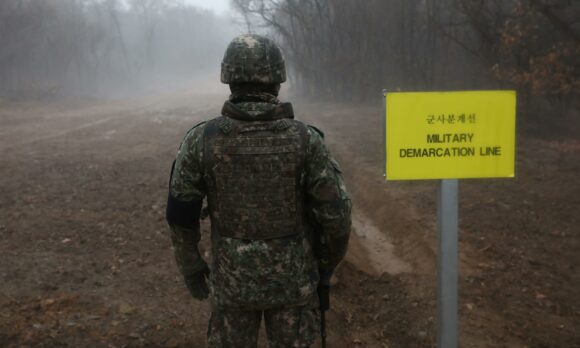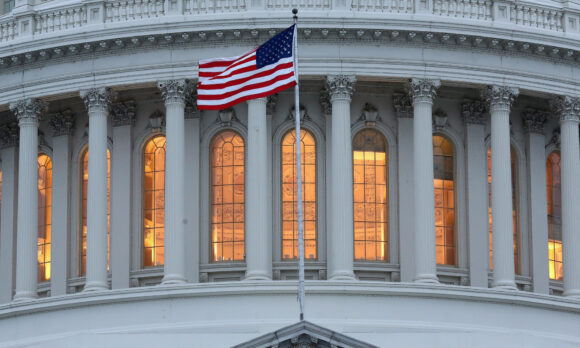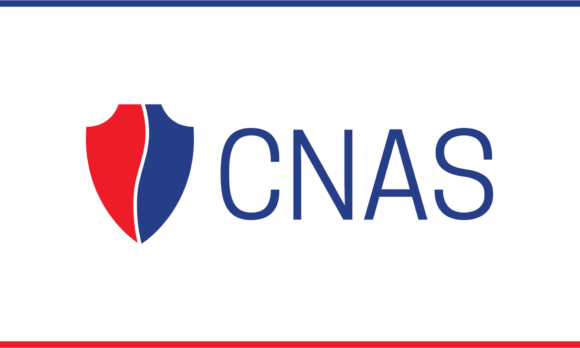May 11, 2022
Sharper: The Authoritarianism Challenge
Analysis from CNAS experts on the most critical challenges for U.S. foreign policy.
Autocratic leadership is on the rise globally. Even in democratic nations, leaders are eroding checks on their power and weakening institutions. The use of illiberal technology is enabling anti-democratic power grabs that can lead to destabilization and human rights violations. CNAS experts are sharpening the conversation around the global rise of authoritarianism and the threat to liberal democracy. Continue reading this edition of Sharper to explore their ideas and recommendations.
Features
After Putin: Lessons from Autocratic Leadership Transitions
"Although Putin’s attack on Ukraine has increased the challenges he faces at home, he may very well be able to weather the backlash. History is rife with embattled autocrats who successfully maintained power despite domestic economic challenges and significant opposition," write Andrea Kendall-Taylor and Erica Frantz in The Washington Quarterly. "High and rising levels of repression, tight control over Russia’s media environment, and historically loyal security services position Putin to withstand mounting dissent. If Putin does endure the turbulence, he has the legal authority to remain in office until 2036. This is thanks to constitutional changes in 2020 that allowed Putin—then already in power for twenty years—to reset the clock on his presidential term. Putin could even, in theory, once again find a way to change term limits to allow him to stay beyond 2036, at which time he would be 83 years old."
The Future of the Digital Order
Nations that successfully harness the vast economic, political, and societal power of emerging information and communications technologies will shape the future of the global digital order. But this future is not set in stone. A closed, illiberal order is taking root in strategic regions around the world, as nondemocratic governments exploit digital tools to grow both internal control and external influence. A comprehensive CNAS report examines how China, Russia, and various Middle Eastern governments are cultivating this new digital order across three pillars: information control, surveillance, and technology governance.
Dealing with a Taliban-Controlled Afghanistan
Nearly 20 years after U.S. forces overturned Taliban rule in Afghanistan, the country is likely to reemerge as a terrorist hotbed. While competing with China may be Washington’s current focus, managing evolving terrorism threats and protecting human rights in Afghanistan demand continued U.S. attention and resources. In a CNAS report, Lisa Curtis provides a detailed road map for the U.S. role in Afghanistan moving forward—and how policymakers should support the Afghan people without legitimizing the regime. The report also maps how events on the ground have unfolded since the Taliban seized Kabul, examining the key players in the Taliban interim government and how regional political dynamics are likely to exacerbate terrorism challenges.
After Putin: Lessons from Autocratic Leadership Transitions
It is now impossible to imagine that there could be any substantive improvement in US-Russia relations while Putin remains in power....
The Future of the Digital Order
Nations that successfully harness the vast economic, political, and societal power of emerging information and communications technologies will shape the future of the global ...
Dealing with a Taliban-Controlled Afghanistan
Nearly 20 years after U.S. forces overturned Taliban rule in Afghanistan, the fundamentalist Islamist movement is back in power. This follows the U.S. troop withdrawal in summ...
Navigating the Deepening Russia-China Partnership
Russia and China are popularizing authoritarian governance, exporting their best practices, watering down human rights norms, backing each other up to defend strategic interests in multilateral forums, creating norms around cyber and internet sovereignty, and bolstering illiberal leaders and helping them stay in power, write Andrea Kendall-Taylor and David Shullman in a CNAS report. Some of this is more alignment than coordination. But the point is that they are singing from the same sheet of music, which increases the dose of their messaging. They legitimize each other’s actions, making them more persuasive with swing states, which will be crucial in determining the future trajectory of democracy.
China's Digital Currency and Authoritarianism
China is the first major economy to develop and implement a central bank digital currency (CBDC). Its CBDC has many names: Digital Currency/Electronic Payment, the digital yuan or renminbi, and electronic Chinese yuan. A video explainer from CNAS explores how Beijing’s CBDC efforts will have critical ramifications for the Chinese Communist Party’s digital authoritarianism. As China is in a national blitz to digitize its entire economy, it is strengthening its hand for domestic social control while also influencing financial technology innovation in the global financial system.
U.S. Policy Toward North Korea
Pyongyang began the year with a flurry of missile tests—more in January 2022 than all of 2021 combined—and shows no sign of stopping. The United States, in coordination with its allies South Korea and Japan, have condemned those tests and also offered to engage in diplomatic talks without preconditions. On March 10, CNAS hosted an event featuring Deputy U.S. Special Representative for North Korea, Dr. Jung Pak, and a panel of leading experts analyzing U.S. policy toward North Korea.
Navigating the Deepening Russia-China Partnership
In virtually every dimension of their relationship, cooperation between Beijing and Moscow has increased....
China's Digital Currency and Authoritarianism
China is the first major economy to develop and implement a central bank digital currency (CBDC). Its CBDC has many names: Digital Currency/Electronic Payment (DCEP), the digi...
Fireside Chat | Deputy U.S. Special Representative for North Korea Jung Pak on the Biden Administration’s Approach
Mar 10, 2022
Commentaries
Values Are Interests
"Interests and values are two sides of the very same coin. Both are indispensable aspects of an American foreign policy worthy of its people," write Richard Fontaine and Daniel Twining in American Purpose. "This week’s Summit for Democracy offers the Biden administration a chance to demonstrate this truth in action. It’s also vital that the administration do so. Democracy is on the defensive around the world, and both the number and quality of democracies have declined for fifteen consecutive years. From Burma to Sudan to Belarus, authoritarians are exerting more control, while open societies are increasingly more vulnerable to disinformation, cyber-subversion, and malign foreign authoritarian influence. The stresses on America’s own democracy over the past year have been on vivid display. China and Russia tout their own brand of illiberal autocracy."
The Case for an Alliance of Techno-Democracies
"Leaders in tech-leading democracies also recognize, however, the need for better cooperation with each other to ensure that their technological future is beneficial and secure," argues Martijn Rasser in The Observer Research Foundation. "This understanding is rooted in concerns over the China challenge and the risks associated with tech-enabled authoritarianism spreading around the world. There is also the pragmatic realization that no one country can realistically address these issues on its own given the diffusion of technology and related know-how and the complexity of key global supply chains. Finally, there is the straightforward notion that a collective approach by like-minded countries has a greater chance of success than a collection of disparate strategies."
Values Are Interests
The answer to democracy’s problems is not dictatorship. It is, rather, better democracy—and more of it....
The Case for an Alliance of Techno-Democracies
A tech alliance is the best way to ensure technological leadership by the world’s techno-democracies....
In the News
Featuring commentary and analysis by Richard Fontaine, Lisa Curtis, Martijn Rasser, Emily Jin, Jim Townsend, and Maria Snegovaya.
As Biden Seeks to Bolster Democracy Around the Globe, U.S. Confronts Jan. 6 Fallout at Home
President Joe Biden must acknowledge U.S. shortfalls on democracy, including the events surrounding the Jan. 6 riot at the Capitol, when he meets with world leaders this week ...
Democracy vs. China: Biden’s Top Priorities Are Sometimes in Conflict
President Biden has described the global competition between the U.S. and China as a battle of democracy vs. autocracy. The reality is often murkier. Reality check: “If we onl...
U.S. Enlists Allies to Counter China’s Technology Push
President Biden portrays U.S. relations with China as a clash of values: democracy vs. autocracy. But his rhetoric obscures the administration’s more pragmatic approach of cob...
China’s CIPS: A Potential Alternative in Global Financial Order
Emily Jin, research assistant at Center for New American Security and co-author of “China’s Digital Currency: Adding Financial Data to Digital Authoritarianism” discusses CIPS...
NATO could be enlarging. What does that mean for Russia?
Finland and Sweden are strongly considering submitting bids to join NATO as early as mid-May. But Russian President Vladimir Putin has threatened to deploy nuclear weapons in ...
Nasty, Repressive, Aggressive -- Yes. But Is Russia Fascist? Experts Say 'No.'
Among the characteristics Putin's Russia manifests that mirror fascism are historical revanchism and the embrace of hypermasculine authority -- "the macho cult of Putin" -- sa...
About the Sharper Series
The CNAS Sharper series features curated analysis and commentary from CNAS experts on the most critical challenges in U.S. foreign policy. From the future of America's relationship with China to the state of U.S. sanctions policy and more, each collection draws on the reports, interviews, and other commentaries produced by experts across the Center to explore how America can strengthen its competitive edge.
Subscribe
Sign up to receive the latest analysis from the CNAS expert community on the most important issues facing America's national security.
Thank you for registering! You will receive a confirmation email shortly. All CNAS events are free, open to the public, and viewable from cnas.org/live.
Stay up-to-date with report releases, events, major updates, and announcements from the Center for a New American Security.
More from CNAS
-
A Failure to Plan: Examining the Biden Administration’s Preparation for the Afghanistan Withdrawal
Afghanistan, Iraq, and Vietnam. One failure is a horrible accident; two failures are a tragic coincidence; three failures are a disturbing trend that shows the U.S. government...
By Christopher D. Kolenda
-
Against All Odds
Eighteen months after taking power, the Taliban is intensifying its repression of Afghan civil society and cracking down on the rights and freedoms of all Afghans, especially ...
By Lisa Curtis, Annie Pforzheimer & Jan Mohammad Jahid
-
To Help Afghanistan, Engage Its Political Opposition
The effort to help Afghans shape a better alternative should begin now....
By Richard Fontaine & Lisa Curtis
-
International Community Must Do More to Protect Human Rights in Afghanistan
Human rights in Afghanistan, especially those of women and girls, have deteriorated sharply during the first year of Taliban rule. The very real prospect of losing a generatio...
By Lisa Curtis, Annie Pforzheimer & Jan Mohammad Jahid
















